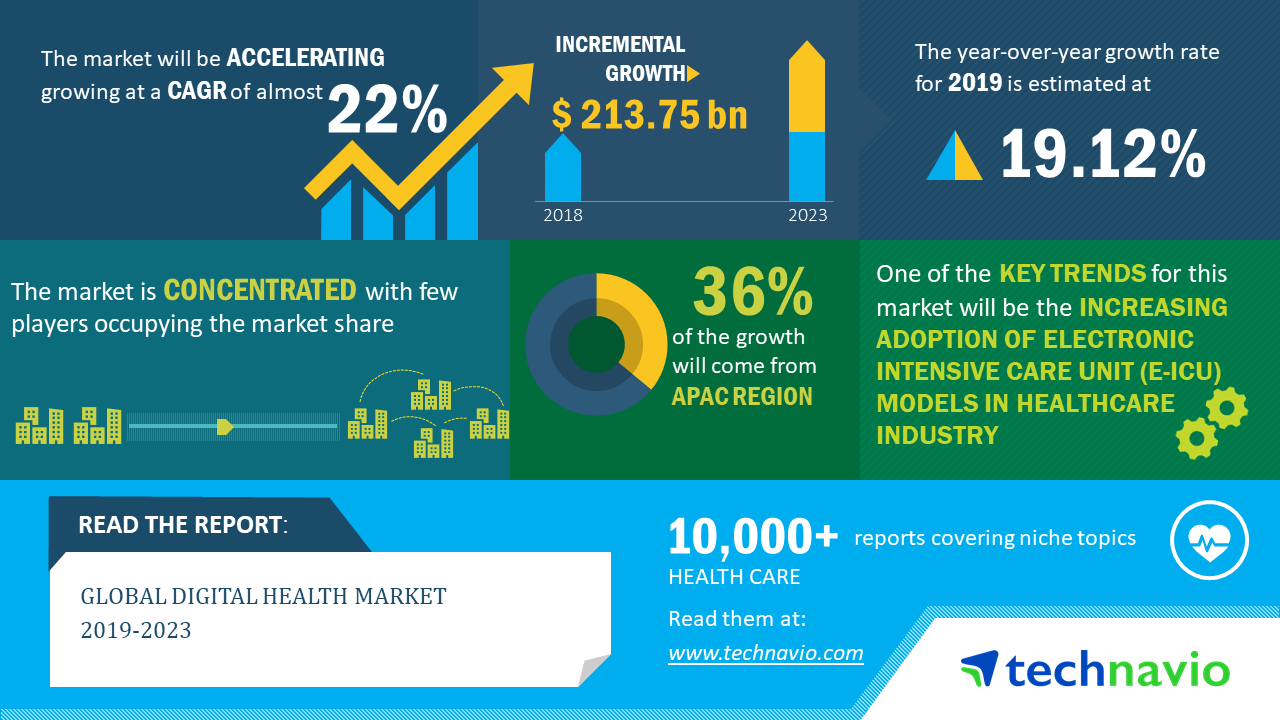How To Make More Digital Health Market By Doing Less
Vendor Landscape
The global digital health market has 25 major vendors as market participants. Pure play and category-specific vendors are focused on a relatively lower number of markets as compared to the diversified and industry-specific vendors that have a wider focus across markets. All the players in the market are category-focused in terms of their overall offerings.
Allscripts Healthcare Solutions Inc., Alphabet Inc., Cerner Corp., Cisco Systems Inc., Epic Systems Corp., General Electric Co., IBM Corp., Koninklijke Philips NV, Microsoft Corp., and Siemens Healthineers AG are among the vendors who have a strong position in the global market. While Ascom Holding AG, BR HomMed, Capsule Technologies, Inc., eClinicalWorks LLC, and InterSystems Corp. hold a favorable position in the global market.

To learn more about the global trends impacting the future of market research, download a free sample: Get Free Sample
Alphabet Inc. is a leading vendor is the segment. The company’s newest product offering include:
- Cloud Healthcare API: It is a managed solution for storing and accessing healthcare data in the Google Cloud Platform. The solution bridges the gap between care systems and applications built on Google Cloud.
- HealtheLife: It is a web-based solution that enables interaction and engagement between health organizations and patients.
- Cerner Learning Health Network: The company, along with DCRI, launched this solution to help clinicians gain insights from the data collected through EHRs.
- Sunrise: It is a comprehensive, revenue cycle solution for hospitals and health systems that provides a single patient record for more informed patient care.
The increasing adoption of electronic intensive care unit
(e-ICU) models in the healthcare industry has been identified as one of the critical
digital
health market trends driving the growth of the market. Factors such as
rising geriatric population, increasing prevalence of chronic diseases, and
shortage of primary healthcare facilities have boosted the demand for patient
monitoring services. Hence, several hospitals and health systems are
increasingly adopting e-ICU and other digital health solutions that allow
specialized doctors to monitor patients round the clock, especially in remote
locations. These e-ICU models use two-way cameras, high-speed internet,
connected devices, and technologies that provide an additional layer of
critical care service. Moreover, e-ICU offers alarms in case of emergencies and
allows data evaluation, medication orders, and test interpretations. These
advantages of e-ICU will boost its adoption in the healthcare industry,
consequently fueling digital health market growth.
Comments
Post a Comment